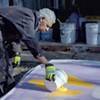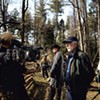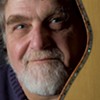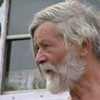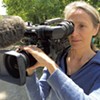click to enlarge 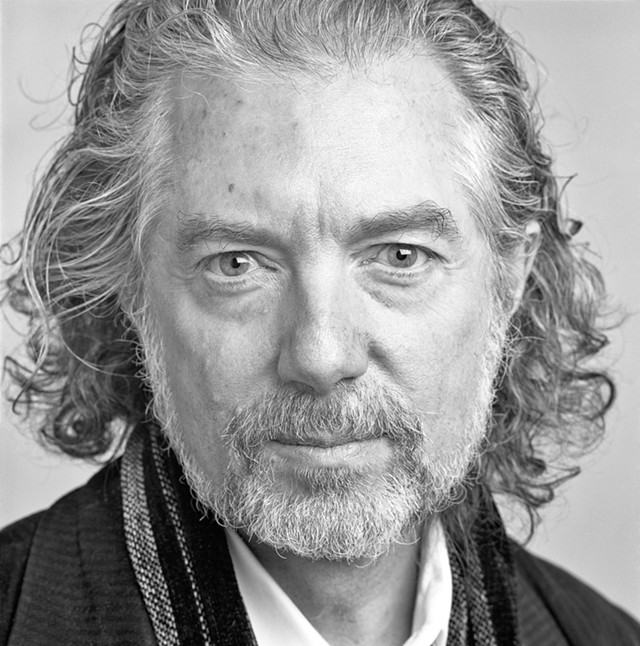
- Courtesy of Todd Lockwood
- Jay Craven
Local indie filmmaker Jay Craven is known for creating movies set in New England, founding Catamount Arts and artistic directing the annual Middlebury New Filmmakers Festival. Now Craven’s contributions to Vermont arts have won him the 10th annual Herb Lockwood Prize, with a cash award of $10,000.
The prize rewards “the pinnacle of arts leadership in Vermont,” artists who produce significant work and have a positive impact on their community, according to a press release. Craven is known for his ability to produce star-studded movies on shoestring budgets, and prize founder Todd Lockwood said he has played a pivotal role in developing Vermont’s rural performing arts.
“He created an arts scene in the St. Johnsbury area that probably didn't exist at all previous to that,” Lockwood said — referring to Catamount Arts, the film and performance venue that Craven founded in 1975. “There's no one else doing what Jay does.”
Lockwood founded the prize in 2014 to honor the memory of his late brother, Herb, an artist and musician who died in 1987. An anonymous group of 20 people selects nominees each year before whittling the list down to a winner. Individuals can’t apply for the award, nor do they know they’re being considered — an important provision in a small arts scene such as Vermont’s, to avoid hurt feelings, Lockwood said. Past recipients of the prize include poet Kerrin McCadden, Bread and Puppet Theater founder Peter Schumann, and actor and director Steve Small.
Craven said the money will grant him time for writing a script and for personal pleasures he wouldn’t normally indulge, such as buying art for his home.
In 1991, Craven and his wife, filmmaker Bess O'Brien, cofounded Kingdom County Productions, through which the two have produced 10 feature films and 11 documentaries, along with projects for television, theater and radio. While financing independent filmmaking has “never been easy,” Craven said working in Vermont has given him the creative freedom to choose compelling stories over potential blockbusters, giving Hollywood less of a monopoly over which stories get told.
Craven works “with budgets that were a fraction of what would be normally spent in Hollywood for the same kind of film,” Lockwood said. “He really established himself as a new kind of director, reinventing the way films are made.”
In recent years, for instance, the former professor at Marlboro College and Sarah Lawrence College often worked with crews that were mixtures of professionals and students, with the latter getting course credit for their work.
A number of Craven’s movies are adaptations of novels by late Vermont author Howard Frank Mosher, a 2017 Lockwood prize winner who wrote fiction set in the Northeast Kingdom. Craven's 1993 film Where the Rivers Flow North tells the story of a Vermont logger and his Native American friend whose way of life is threatened by the construction of a hydro dam. Also based on a Mosher book, Craven's 1999 A Stranger in the Kingdom focuses on a Black minister who moves to small-town Vermont and is accused of murder.
In spring 2022, the filmmaker shot parts of Lost Nation in Marlboro. Set in colonial Vermont, the narrative features real figures such as Ethan Allen and African-born poet Lucy Terry Prince. Craven hopes to premiere it next summer.
The Peacham resident said he chooses stories with a strong sense of place that he views as learning opportunities. “For me, it wasn't really about driving huge numbers in a commercial domain,” he said. “It was about telling stories that have a connection to where I live.”
His next film will be an adaptation of Irish playwright George Bernard Shaw’s Tony-nominated comedy Major Barbara, which follows a young woman who becomes disillusioned after learning the Salvation Army has accepted money from an arms manufacturer and a whiskey distiller.
Now 72, Craven said he plans for Major Barbara to be his last feature film. He’ll continue to be involved in Vermont’s arts scene but gradually step back from leadership roles, he said. He’s also in the process of writing a memoir.
Looking back at his career, Craven said he’s always aimed to create "a cultural connection and understanding of who we are and where we are. That element of where we are, which is Vermont, is something that really motivated me.”









































